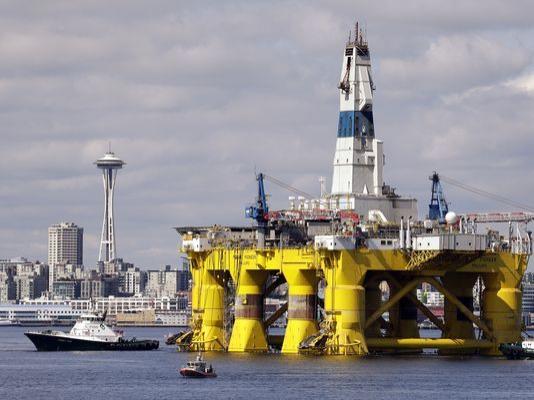
U.S. OIL: UP 400 TBD

PLATTS - Russian energy minister Alexander Novak told S&P Global Platts on Tuesday that he expects the five-country committee charged with monitoring compliance with the OPEC/non-OPEC production cut deal to discuss a global production level where participants may agree to extend the deal beyond June.
While he said it was "premature" to discuss whether the deal could be extended, Novak did not rule out that an acceptable production level could be discussed by the monitoring committee soon.
"Countries participating in the Vienna agreement are not conducting discussions currently [at what level of global crude production] the OPEC/non-OPEC deal could be extended," he said. "But I don't rule out that at some point this could be discussed within the five-country committee which is to meet at the end of March in Kuwait or at the technical level."
In an interview on the sidelines of CERAWeek by IHS Markit in Houston, Novak said he believes that hitting the balance of crude supply and demand on the global oil markets as well as increasing investment attractiveness of the oil sector would be more important factors for a possible extension of the OPEC/non-OPEC crude production cut deal than reaching a certain price level.
"I don't think we can consider a single factor as the most important," he said.
"What is much more important for us is the actual balance of supply and demand. We believe we need to reduce market volatility and raise investment attractiveness of the sector," he said.
Short- and long-term outlooks for the oil market also play an important role for a potential decision to extend the six-month production cut deal which became effective in January, he said.
Novak was a key architect of the joint OPEC and non-OPEC agreement, under which OPEC countries agreed to cut the output by a combined 1.2 million b/d compared with October levels, while non-OPEC countries, led by Russia, committed to cut a combined 558,000 b/d of output. The total cuts represent about 2% of global supply.
Novak said he was not surprised how quickly countries participating in the deal cut their output and the strong conformity with the commitments due to voluntary nature of the deal as oil producers understand the necessity to reduce market volatility.
"I'm sure that all the countries were planning to meet the commitments," he said.
Russia itself cut its production at higher levels than it initially expected in January and February and plans to meet the goal to reach its commitment to gradually cut the output by 300,000 b/d by May.
Rising oil production in the US, which Russia's energy ministry forecasts to grow by 400,000 b/d year on year in 2017, is being monitored, but it should not be considered separate from the global supply and demand balance, he said.
"We understand that with the oil price rise the investment attractiveness of the sector, including shale oil projects, is rising ... but the key factor will be the general situation on the market," he said.
At the same time, the efficiency of the production cut deal might have been boosted if companies from the US, one of the biggest oil producers, joined the initiative, Novak said, without elaborating if he believes such a move is possible.
"This is a voluntary initiative," he reiterated, when asked whether he will be prepared to repeat his call for the US to join the initiative.
RUSSIA-US ENERGY TIES
Novak said he has not had any discussions with Trump administration officials since President Donald Trump's inauguration in January, but said he hopes the two countries would manage to restore constructive dialogue aimed at energy cooperation between the two countries.
"The Russian market is attractive for investments, including due to high returns it offers, and those opportunities are being used by companies from other countries," he said.
ExxonMobil was among the companies that were hit most by US sanctions imposed on Russia in 2014, with major joint projects, including those in the Arctic waters, being frozen.
Novak, however, declined to comment if he believes the sanctions could be eased now, with former ExxonMobil CEO Rex Tillerson now the Trump administration's secretary of state.
"It's internal policy of the US administration. We are not those who imposed the sanctions," he said.
But he added that "based on what we've seen over the past few years, American companies which want to work in Russia suffer themselves from the sanctions."
When asked if the Russian government might consider cancelling licenses in which ExxonMobil is involved via joint ventures with Rosneft, because those projects are frozen, Novak said: "We haven't even considered this. This is a corporate topic to be sorted out by the companies themselves."
Novak said Russian companies continue to develop Arctic onshore reserves actively, despite the sanctions that limited cooperation with international majors.
The overall production from Russian Arctic projects amounts to 1.8 million b/d, he said, while "offshore projects are seeing a decline in activity under current prices," he said.
At the same time, Russia has been able to "considerably improve" its technology and manufacturing sector due to the sanctions, with oil projects' development and production cost have been lowered to levels only matched in the Middle East, Novak said Tuesday during a ministerial breakfast at CERAWeek.
-----
Earlier:





